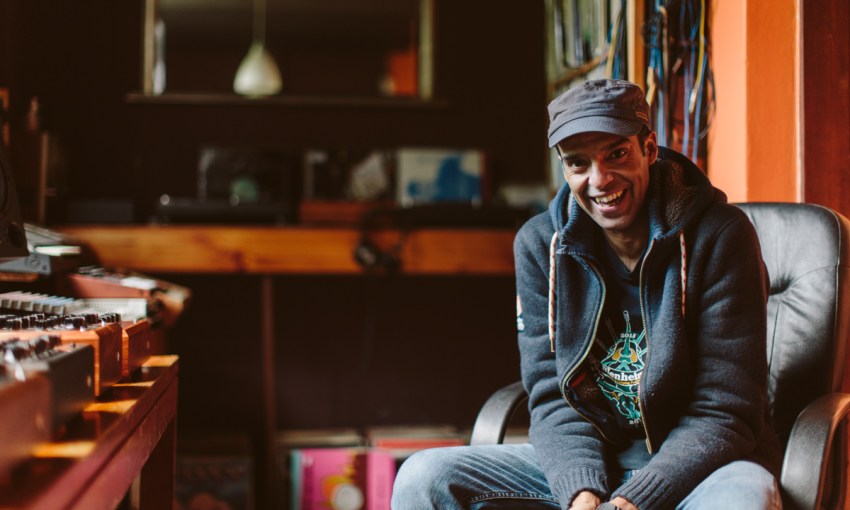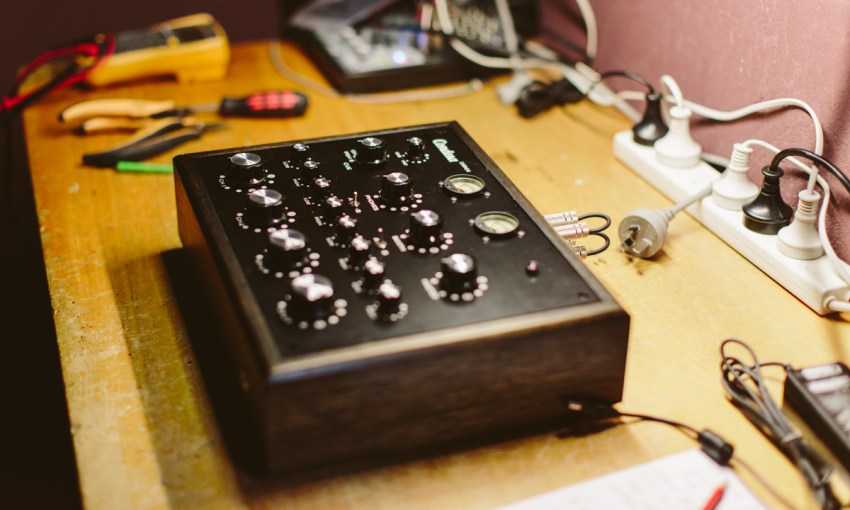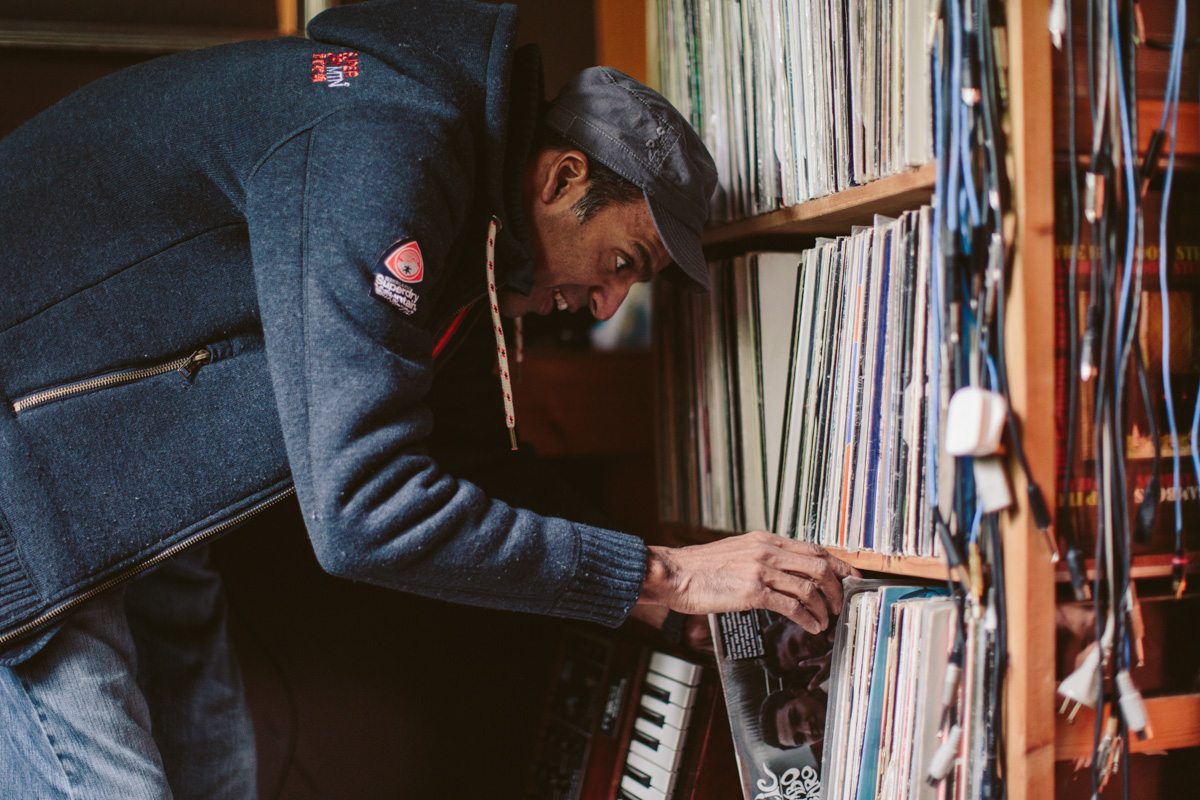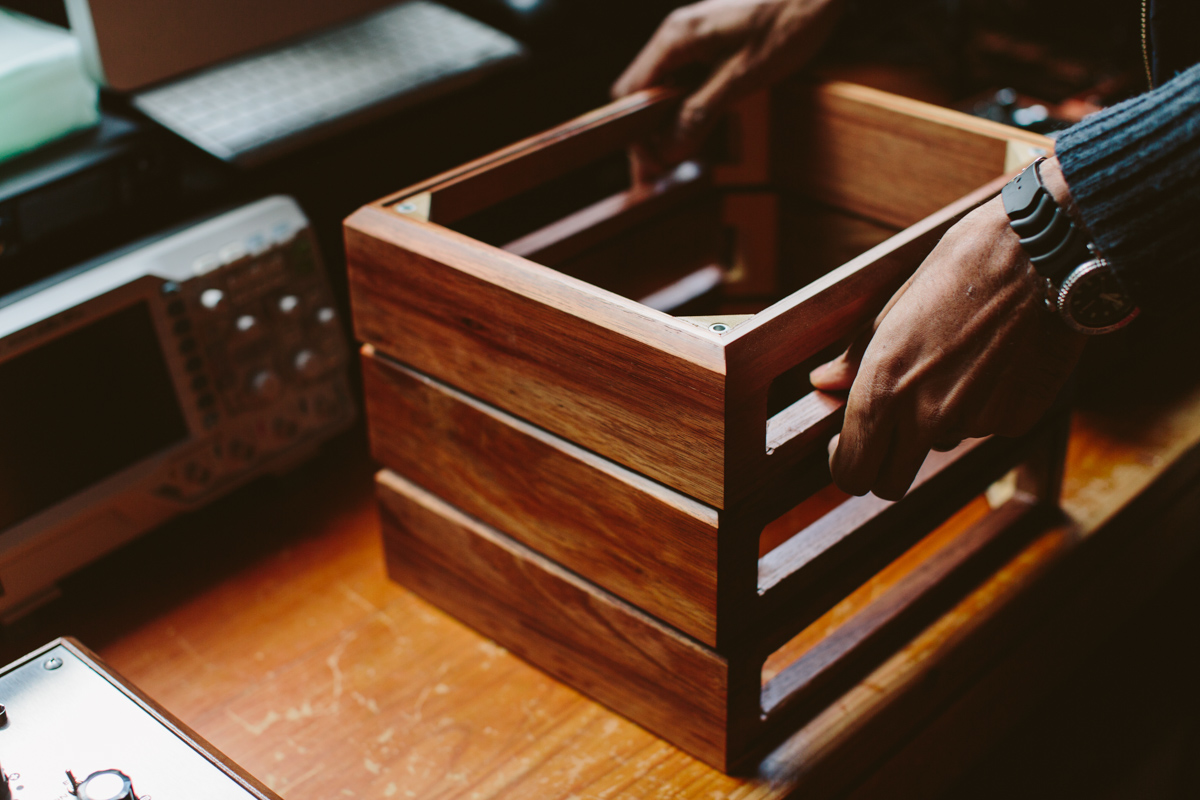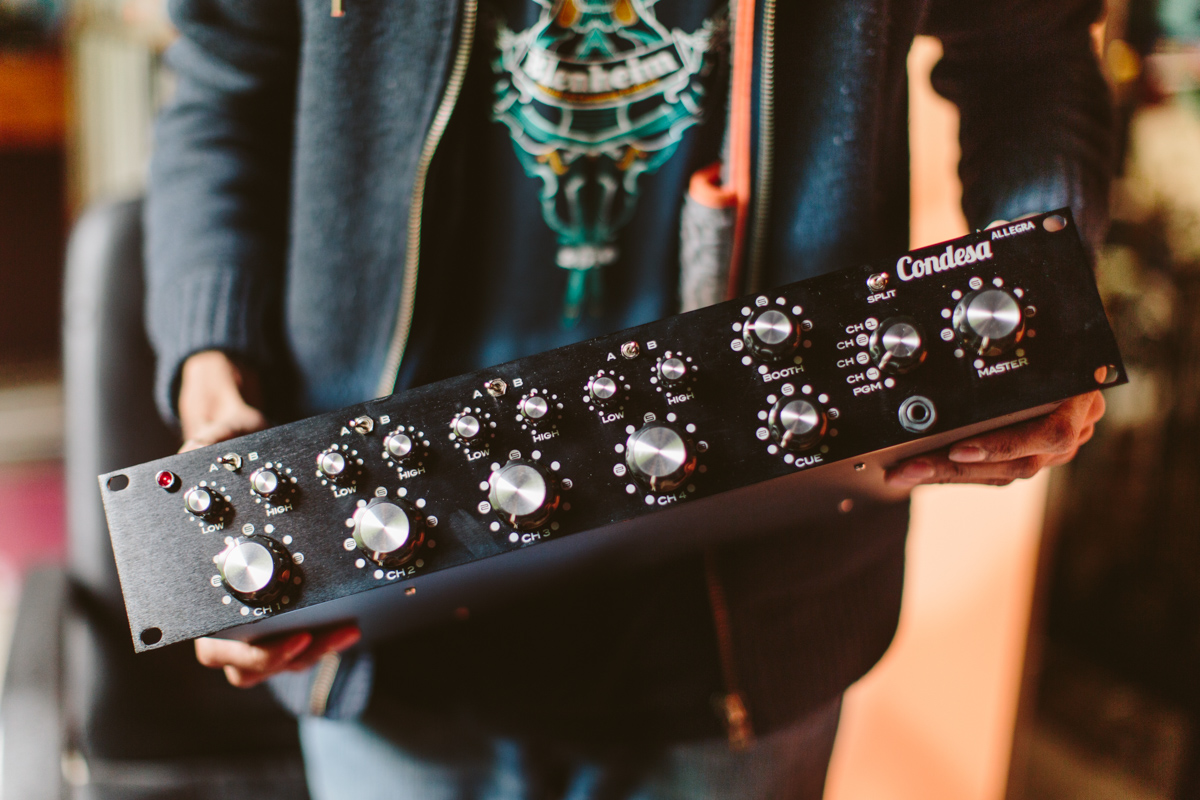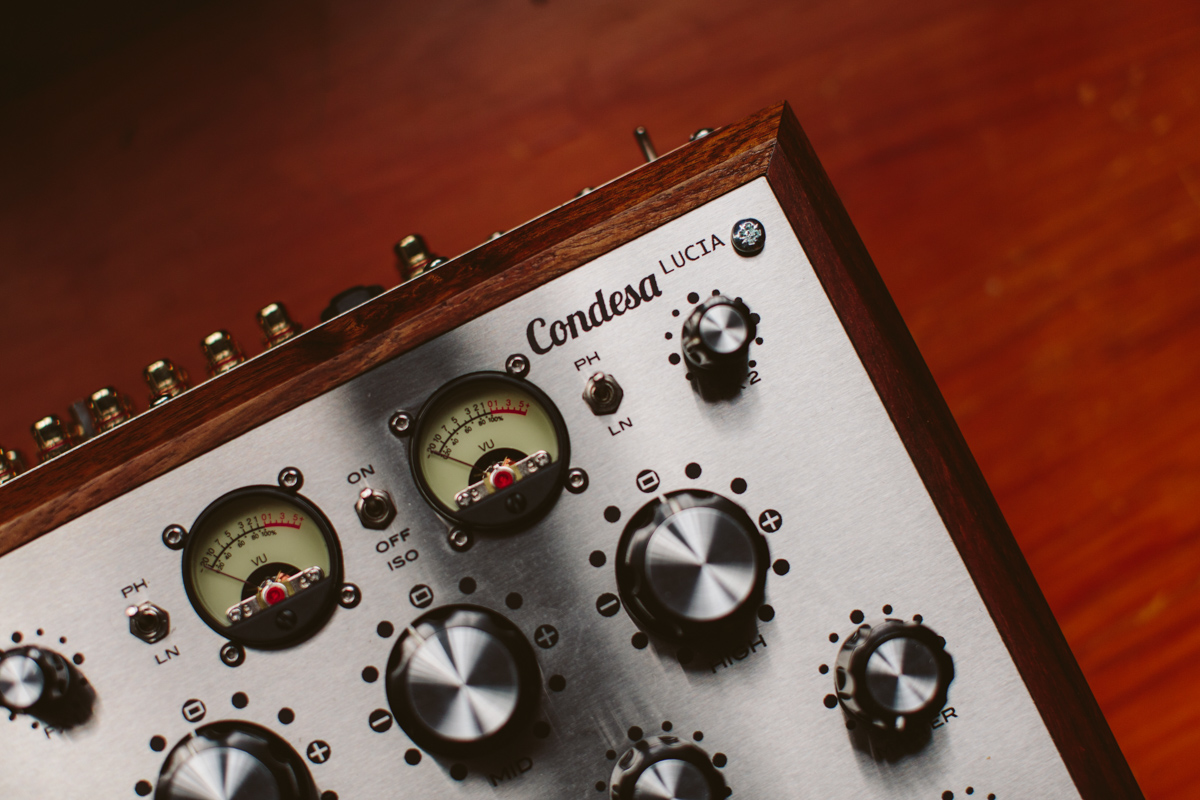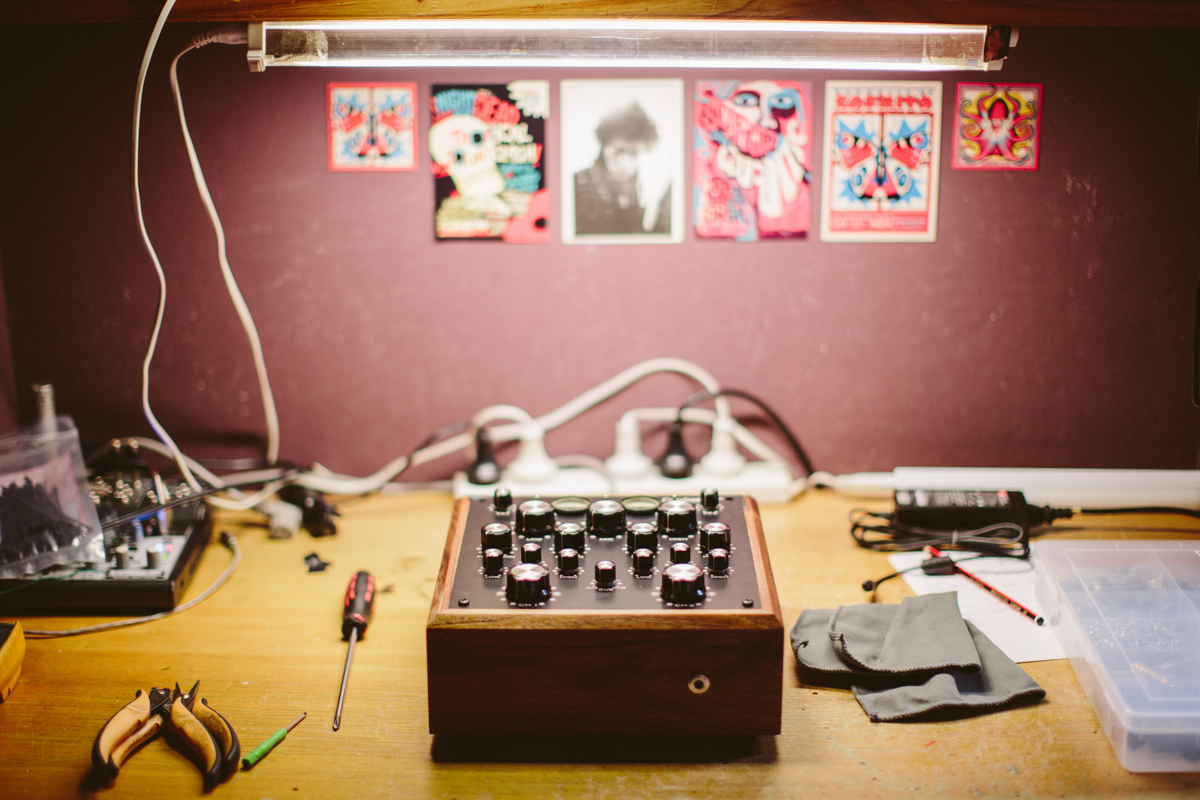From a cosy home in Blackwood to disco clubs in Detroit, Condesa Electronics is exporting quality sound to those who know what it’s worth.
On high rotation
Growing up just outside London, Mehdi El-Aquil’s simultaneous love of music and electronics flourished early on.
“I started liking music – really liking it – when I was about 12,” Mehdi says.
“We had a lot of tapes that came through [our house]… sort of electro music, breakdance music, … it was like Herbie Hancock going into early Melle Mel and Furious Five tunes, and other sort of lesser known electro funk stuff.
“It fascinated me how they’d chopped it up and they’d made it interesting.”
With a passion for the technicality of electronics, Mehdi started pulling equipment apart and learning how it worked, before eventually pursuing it as a career.
“I got an apprenticeship in electronics with security systems to begin with, but there was an audio component to it, and I was good at it,” he says.
From such humble beginnings, Mehdi now produces world-renowned audio equipment through his company Condesa Electronics, with handmade mixers going from his home in Blackwood to DJs in Paris, London, Singapore and the States.
The beautifully packaged and laboriously constructed consoles are the product of Mehdi’s familiarity with clubs (he’s a DJ himself), and an understanding that for certain genres of music, the mass-produced high-end mixers, while efficient, aren’t great for the punter’s overall experience.
“When you look at the proper hi-fis that were around in the ’70s and ’80s… they had a discrete circuit, they took care of the audio path, they tried to make it the best, and I’ve tried to take that same mentality and apply the same theory to try and make them sound as best they can,” Mehdi says.
“It isn’t clinical, it isn’t neutral, it does have character, but it’s a character that doesn’t give you listening fatigue, and it makes you want to turn it up a little bit more and enjoy the music.”
Mehdi’s design also preferences rotary dials over faders, which was in part due to it being easier from a manufacturing point of view, but it also suits the style of music Mehdi’s immersed in.
“A hip hop style of mixing, you can’t really do with them, unless you’re really dexterous, which some hip hop guys could probably do it,” Mehdi says.
“But for smoother house music and for disco, and for more that sort of groove, less chopping style of mixing, they’re very good.”
And the right kind of people have been noticing.
“The first one went to quite a well known disco, house DJ from New Zealand called Frank Booker, and it was good to have him involved,” Mehdi says.
“He was a constant reminder and, because my hands were full with just working anyway, that little push really helped to get it across the line.
“[And] a music man from Detroit, Marcellus Pittman, he had come over to Sugar too… and he said ‘look, I want one.’
“He took it back to Detroit, and you know, those guys really know their music, so to get him to say ‘wow, it sounds amazing’… to get those DJs give the real positive feedback… it’s good. It’s really good.”
Condesa’s output has grown fairly rapidly, and Mehdi now has 40 mixers on order at any given time.
Mehdi and three helpers build them all by hand, and the business is reaching a point now where it may have to take over the entire garage (pending his wife’s approval) or move out into a workshop.
However he does it, Mehdi’s only concern is that none of the focus that has made his brand a success is lost.
“[They’re] designed from the ground up and coming from a sort of thinking that it’s not going to be an automated production, we’re not trying to skimp on every part to make the biggest profit,” he says.
“These have a little bit more reliability and longevity to offer. I think they’d last 10, 20 years without a problem, personally, I really do. That’s the way they’re designed.”



